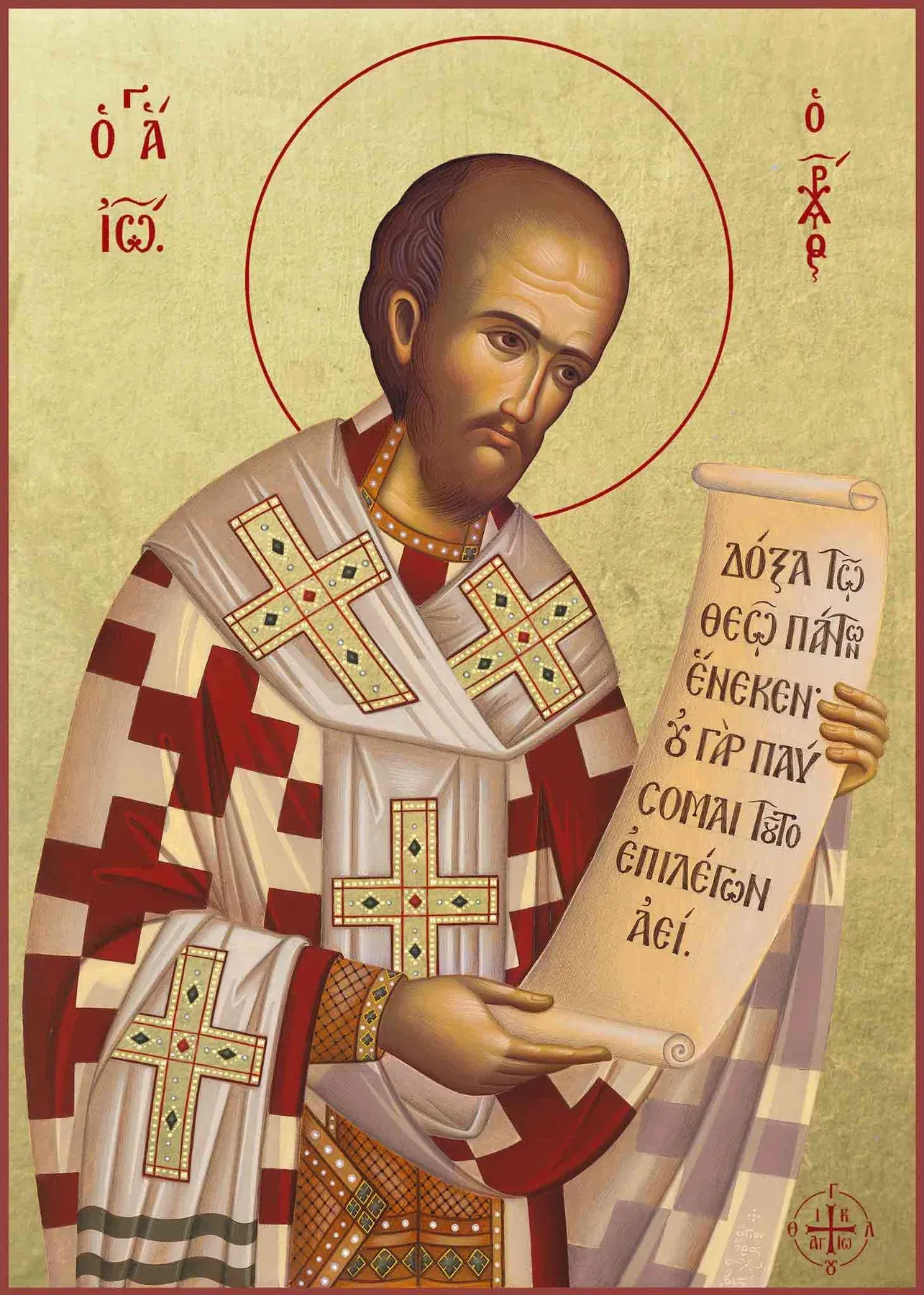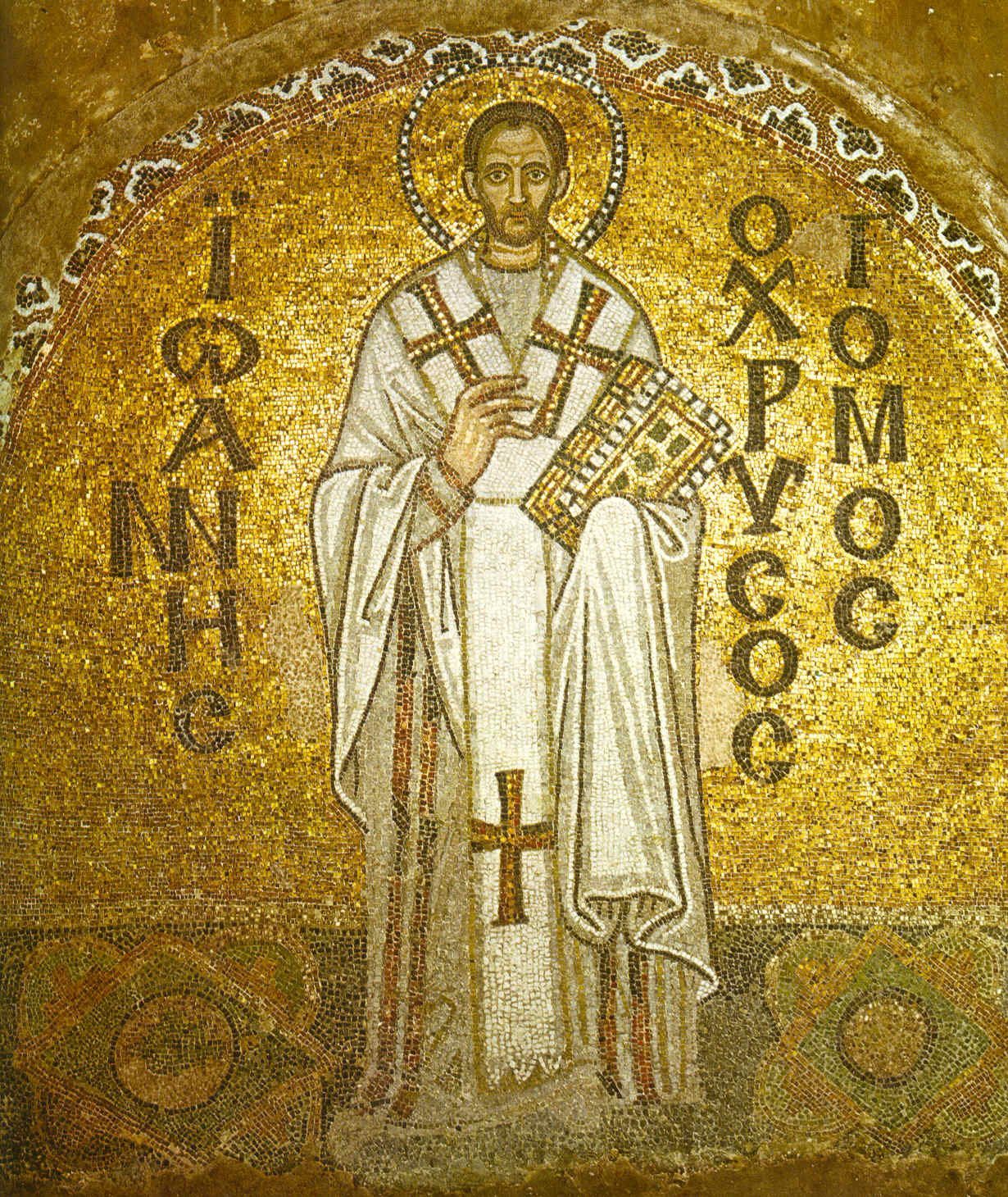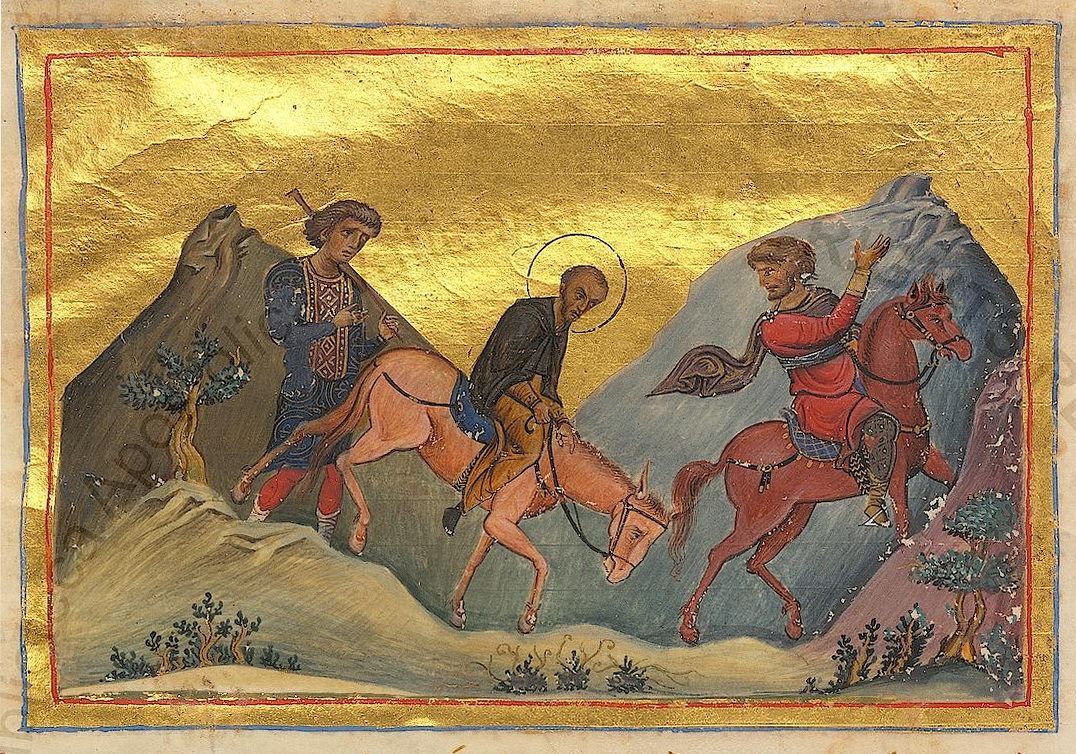Message of Abbot Paul - Wednesday 13th September 2023
Abbot Paul • September 12, 2023



What a great privilege it was to celebrate Sr Mary Wood’s Requiem and Burial at the Poor Clare Monastery in Much Birch yesterday. Sr Mary, of course, had been a married woman before entering monastic life at Lower Bullingham in 1994, ten years after the death of her beloved husband Leonard. As a nun she remained a loving mother and grandmother. She lived such a full and interesting life as her eulogy testified. She was given a wonderful “send-off” by her family, monastic community and many friends. May she rest in peace and rise in glory.
Today, after Mass at Leominster, I will be driving up to Oulton Abbey in Staffordshire to visit Fr Thomas, so I have no idea what time I will be back and if it will be possible to sit down and write a message for Thursday, the feast of the Exaltation of the Holy Cross. Today, we celebrate the great St John Chrysostom, Archbishop of Constantinople and Doctor of the Church, who died a martyr’s death imprisoned in exile on 14th September in the year 407.
Our Gospel passage comes from Luke, (Lk 6: 20-26), his version of the Beatitudes, as preached by Jesus. This is known as the Sermon on the Plain.
“Fixing his eyes on his disciples Jesus said:
‘How happy are you who are poor: yours is the kingdom of God.
Happy you who are hungry now: you shall be satisfied.
Happy you who weep now: you shall laugh.
Happy are you when people hate you, drive you out, abuse you, denounce your name as criminal, on account of the Son of Man. Rejoice when that day comes and dance for joy, for then your reward will be great in heaven. This was the way their ancestors treated the prophets.
‘But alas for you who are rich: you are having your consolation now.
Alas for you who have your fill now: you shall go hungry.
Alas for you who laugh now: you shall mourn and weep.
‘Alas for you when the world speaks well of you! This was the way their ancestors treated the false prophets.’”
Here Jesus is speaking with his followers rather than with a large crowd, so his words are meant for those who already regard him as their religious or spiritual leader. He explains how the kingdom of God turns the values of the world upside down. Obviously, the two sermons, this and Matthew’s on the Mount, are similar and related, but there are also differences. Jesus was an itinerant preacher, who preached the Good News over and over again. There were bound to be different nuances according to where and when he preached and to whom. There is greater immediacy here than in the Sermon on the Mount, with our four blessings and four woes. When I read the very first, “Blessed are you who are poor: yours is the kingdom of God,” I always remember my years in Peru where I lived with and ministered to people who were really very poor, who had nothing. They had only God to turn to and God often heard their prayers and granted their requests. We are so rich, that we hardly know or can imagine what it means to need God and turn to him in our need. We can become self-sufficient, so that God becomes marginalised and unnecessary. Perhaps this accounts for the lack of faith in our country today. God has become superfluous to our needs.









